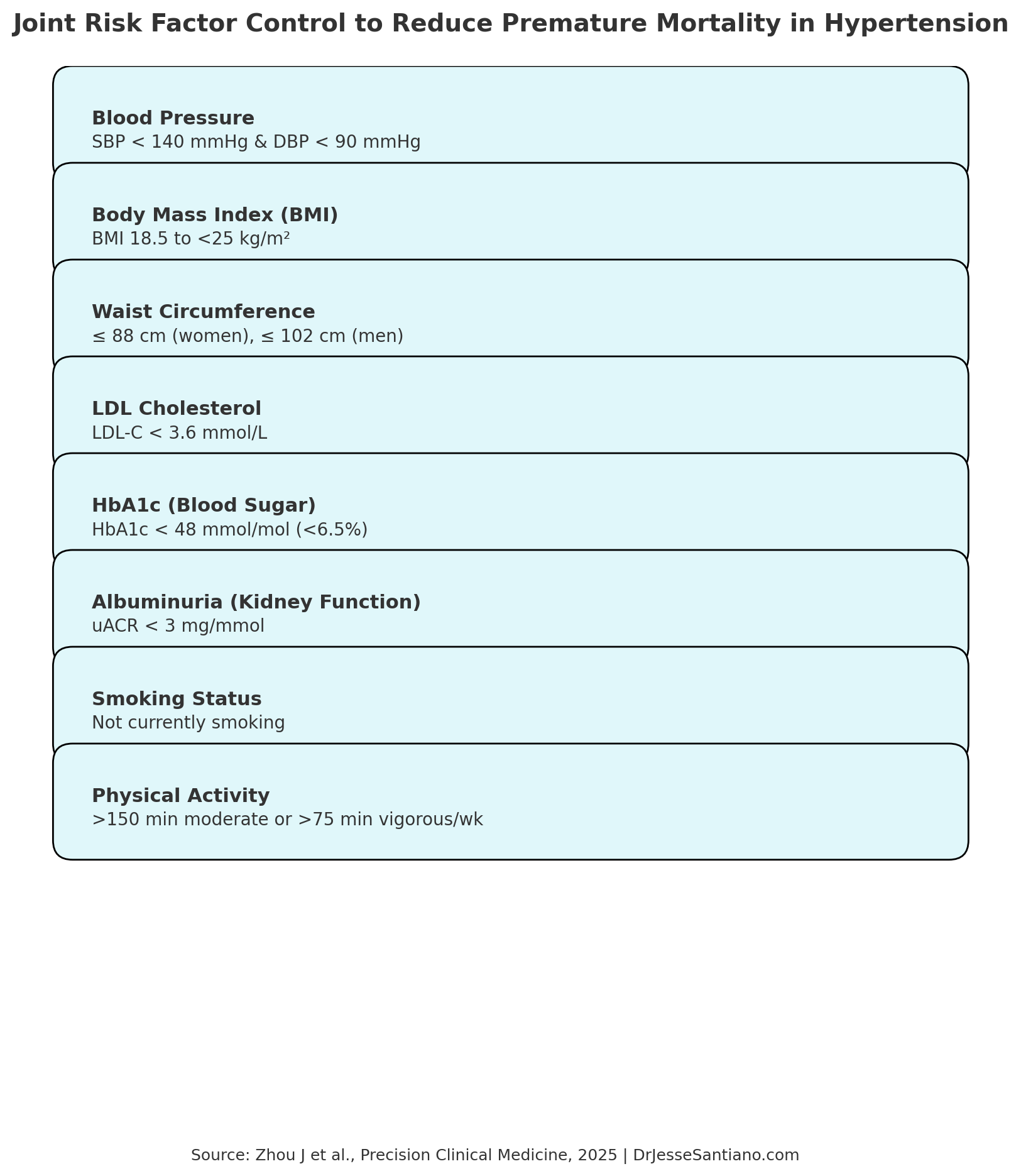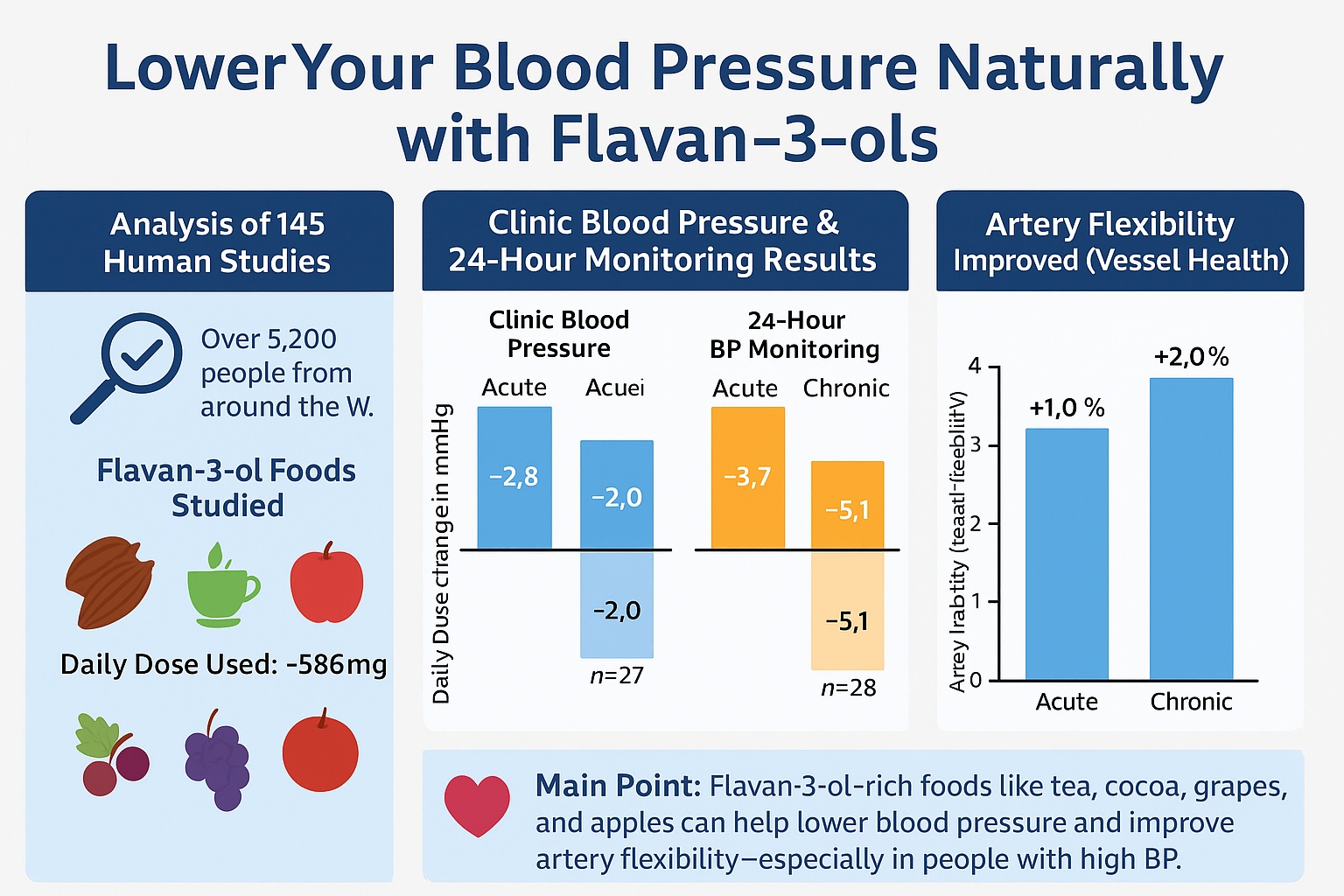Introduction Hypertension, or high blood pressure, affects more than 122 million adults in the United States—nearly 1 in 2 adults—and over 1.28 billion people globally, according to the World Health Organization and the CDC. Often called the “silent killer,” it quietly damages blood vessels and organs over time, leading to deadly complications like heart attacks,…
Tag: Hypertension
End Hypertension Now With These Heart-Saving Superfoods
This article dicusses the foods that can lower blood pressure effectively.
Escape Hypertension Now: The Shocking Truth About Exercise Vs. Pills
This article compares exercise and the use of medications to lower blood pressure. You probably know which is better, but read on because some things will surprise you.
New Study: Vitamin D Fights High Blood Pressure
This article discusses a study showing that vitamin D and calcium supplementation can lower blood pressure in overweight older adults. Key Research Findings A groundbreaking one-year clinical trial revealed that vitamin D supplementation and calcium can significantly reduce blood pressure in overweight elderly individuals. The study, published in the Journal of the Endocrine Society, challenges…
Sugar Rationing In The First 1000 Days Of Life Protected Against Chronic Disease
A landmark study published in Science has revealed compelling evidence that sugar exposure during the first 1,000 days of life—from conception through early childhood—significantly impacts lifelong metabolic health. The research cleverly utilizes a natural experiment created by the end of sugar rationing in the United Kingdom in September 1953. The Natural Experiment Historical Context During…
Hyperinsulinemia
Hyperinsulinemia means high insulin levels. Persistent high insulin leads to conditions like obesity, diabetes, and hypertension. The good news is there is something you can do about it. What is Insulin? Insulin is the primary hormone for fuel storage in the body. After eating, macronutrients like carbohydrates, proteins, and fats are broken down into easily…
3 Reasons Why Your Blood Pressure is High and What to Do About Them
Hypertension is a common problem and can lead to heart attacks and strokes. High blood pressure also destroys other organs like the kidneys. And lead to kidney failure. There are many reasons why blood pressure rises. Here are the most common. 1. High insulin levels Insulin levels go up with meals, especially with sweets and…
What is Insulin Resistance?
Insulin resistance is the linchpin of many diseases of modern life like metabolic syndrome, obesity, and Type 2 diabetes. Knowing about how insulin resistance develops provides a better understanding of the familiar and deadly diseases that may be affecting you or someone you know. Normal Glucose Metabolism All the cells in the body need a…
How Does Exercise Prolong Life?
There is a dose-response relationship between physical activity and length of life. The more and vigorous the movement, the longer the life. That was the topic of Physical Activity Correlates with Life Span. The more powerful the movement, the longer the life. So how does the body do that? How can movement and exercise make…
Nitric Oxide in Medicine
Nitrates for Chest Pains Nitrates have been used in medicine decades before the biomolecular basis for its functions were known. Cardiac patients are advised to take a nitroglycerin tablet under the tongue (sublingual nitroglycerine) if they feel any angina. The sublingual nitroglycerin dilates the blood vessels and lessens the work of the heart to causing…
The Metabolic Syndrome
Metabolic Syndrome (MetS) is a group of conditions that include high blood pressure, obesity, high blood sugar, and low HDL and high triglycerides. The combination of the separate components of MetS has been associated with strokes, heart attacks, gout, fatty liver, and Type 2 Diabetes. Having One Component of Metabolic Syndrome Makes it Likely That…

